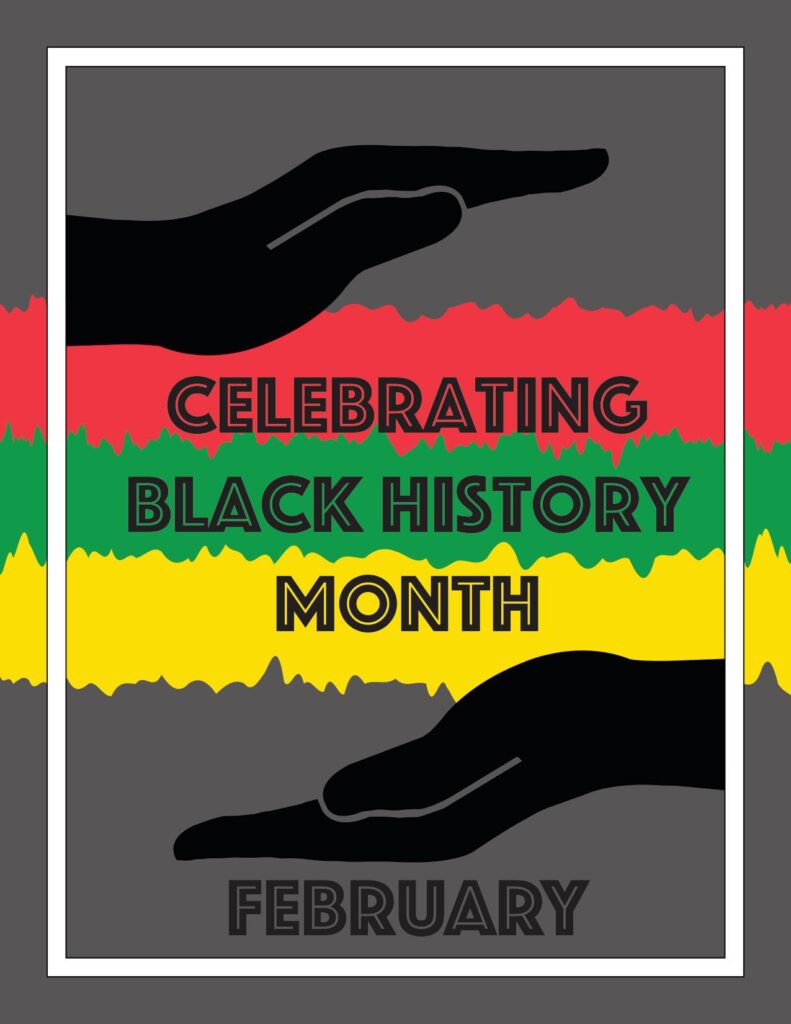
So why February? The history of Black History Month
Photo by Savannah Williamson
C.J. Eldridge, News and Features Editor
Every year for nearly 50 years, we’ve celebrated Black History Month. How did it first start, and does it continue to live up to the intentions of its original creator? We have to start from the beginning.
In 1926, Carter G. Woodson had the idea of setting aside a time to appreciate and learn about the history of African Americans. Woodson’s Negro History Week turned into Black History Month in 1976 when President Gerald Ford officially recognized the holiday.
The month of February wasn’t picked at random. Woodson wanted this celebration to coincide with the birthdays of Abraham Lincoln and Frederick Douglass. The Black community had already celebrated the two icons for a long time on their respective days. But Woodson had greater things in mind.
He wanted to turn the celebration of two men into the celebration of a culture. He wanted all of the nearly 200,000 Black soldiers who served in the Union Army to be recognized for freeing the slaves as well. He wanted everyone to understand how the generations of Blacks that came before helped to erect the civilization we have today.
If you want to read more on Black History Month and its origins, this resource should help.
Woodson’s goal of using Negro History Week to further educate people on Black history has succeeded in ways. Dean of the College of Humanities and Sciences Paul Thompson said that the kind of history normally focused just around February is being taught other times of the year.
North Greenville University has classes addressing the African American experience. Thompson teaches courses on African American history to 1877 and a course on Africa and the slave trade. A course on African American literature is in the English department. There has been a course on the Harlem Renaissance as well.
Other schools’ events to celebrate include art exhibitions and topical discussion panels.
But should an entire race’s history continue to be relegated to one month? Thompson, a Black man, has his own thoughts on this.
“I actually think that it is something that should be antiquated, should be out of date. We should be done with it by now,” Thompson said.
He believes, however, that it is fine in a K-12 or higher education setting where Blacks are a minority to have an opportunity to highlight them in that month since they may not be highlighted for the rest of the year. Outside of education, it’s different, since the month has almost been co-opted by large businesses to sell to a demographic.
Thompson said, “I don’t know if everyone should be excited about Black History Month–I really don’t–because his [Carter Woodson’s] goal was not to get everybody talking about black history for four weeks a year . . . His goal was to simply get white society to realize Blacks have a history too.”
There were no books about Black history that whites were reading during Woodson’s time at all, he explained. But now is not that same time in the 1920s.
He said, “If one wants to argue that it is completely passé, they have to, in the same breath, argue this should be infused throughout the curriculum from the beginning of the year to the end of the year. And if that’s what someone does, I don’t care the color of their skin, I will support them.”
In this context, Thompson thinks a month of Black history should be gotten rid of and it should be taught every month of the year. If there is a significant African American person in the history someone is teaching, they should make sure they are touched on. He thinks someone would be right to do this.
Thompson is not the biggest fan of the month itself given Woodson’s original intentions, but putting Black History Month itself aside, those original intentions have greatly changed society nearly a century later.
“I fully suspect that if he [Woodson] was alive today, and he picked up at least a high school history book, he would probably be quite shocked at the amount of coverage of African Americans . . . I think he’d be pretty surprised, and I think he’d be pleasantly surprised,” Thompson said. “I think he would feel we’ve come a mighty long way.”
